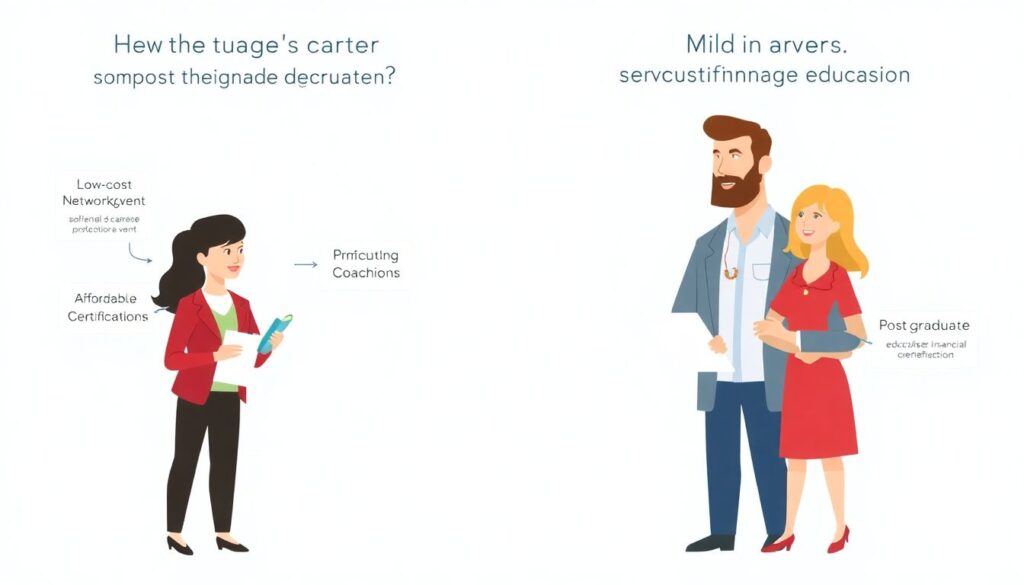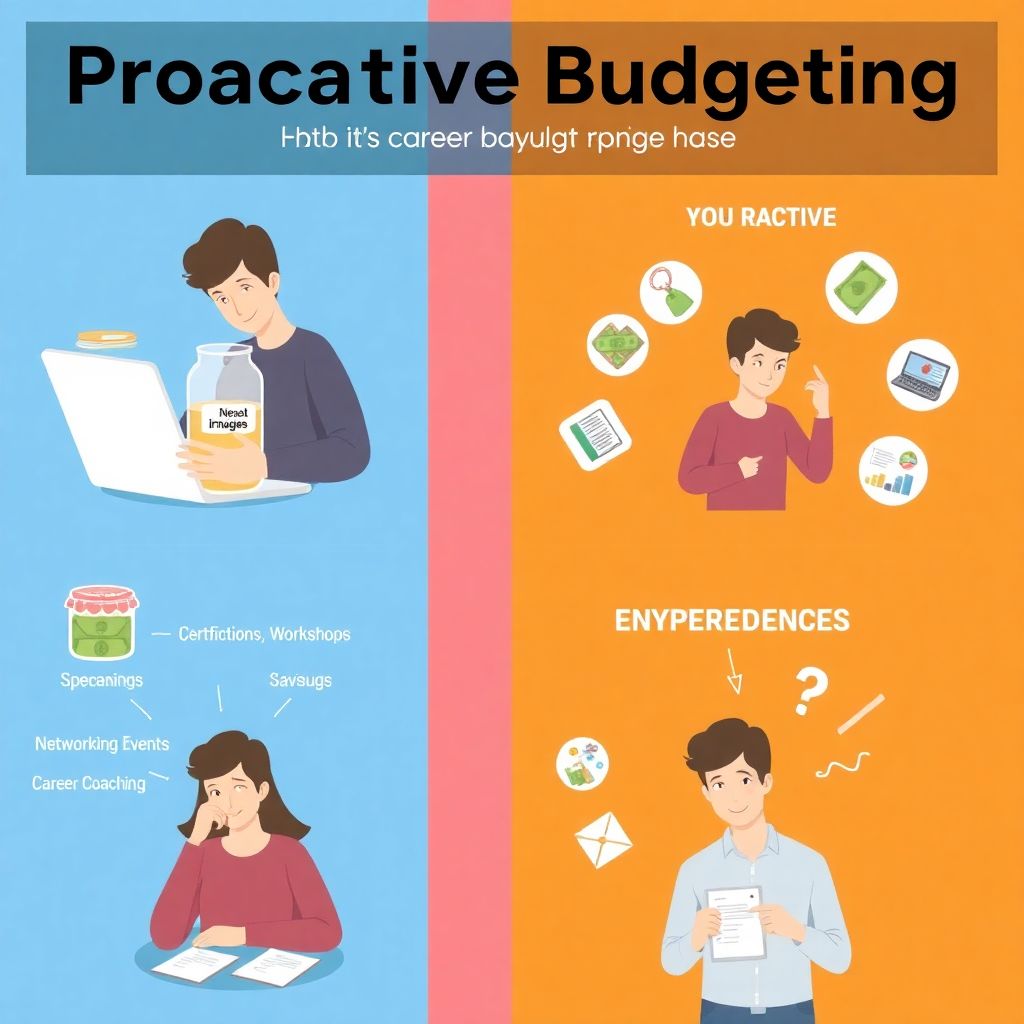Understanding Proactive Budgeting in Career Development
Proactive budgeting for career advancement involves strategically allocating personal financial resources to support long-term professional growth. Unlike reactive spending—where money is used as needs arise—proactive budgeting anticipates future educational and career opportunities. This forward-thinking method offers professionals a significant edge, especially in an era where continuous skill development is critical. Core elements include setting aside funds for certifications, workshops, networking events, and career coaching. Rather than waiting for employers to finance advancement, individuals take the initiative, ensuring their career trajectory remains in their control.
Contrasting Approaches: Reactive vs. Proactive Strategies

Two dominant budgeting philosophies stand out in career planning: reactive and proactive. Reactive budgeting addresses immediate financial obligations, often leaving little room for career investment. This method can lead to stagnation, as unanticipated opportunities may be missed due to lack of funds. In contrast, proactive budgeting allocates specific portions of income toward future career enhancement. For instance, setting aside a monthly percentage for professional development ensures readiness when a promising course or conference arises. While proactive planning requires discipline and foresight, it ultimately enables more flexible and intentional career moves over time.
Technology in Budgeting: Benefits and Drawbacks
Modern budgeting tools and fintech platforms have revolutionized how individuals manage funds for career growth. Apps like YNAB (You Need A Budget) and Mint allow users to set custom goals, track vocational expenses, and receive alerts for overspending. Artificial intelligence now assists in predicting future costs, analyzing patterns, and suggesting budget adjustments in real-time. However, dependence on technology carries pitfalls. Over-automation can lead to passive management, where users rely on machine suggestions without understanding their financial ecosystem. Data privacy remains a concern, particularly when sensitive information is linked to career planning.
Pros of budgeting technologies:
– Automated tracking of career-related spending
– Goal-setting features aligned with advancement plans
– Integration with bank accounts for real-time updates
Cons of budgeting technologies:
– Risk of data breaches
– Reduced user engagement in financial decision-making
– Subscription costs for premium features
Choosing the Right Approach for Your Career Goals

Selecting an optimal budgeting strategy depends on one’s career stage, industry, and personal financial health. Early-career professionals might prioritize affordable certifications and networking events, while mid-career individuals could invest in executive coaching or postgraduate education. A hybrid model—combining long-term savings with short-term flexibility—is often most effective. Financial advisors recommend allocating 5–10% of post-tax income to career enhancement. Key is aligning budget priorities with career objectives, ensuring that each expenditure contributes to measurable growth.
Recommended actions for effective budgeting:
– Define specific career milestones for the next 1–3 years
– Reserve a consistent monthly amount for development
– Evaluate ROI (return on investment) after each career-related purchase
Trends Shaping Career Budgeting in 2025

In 2025, proactive budgeting is increasingly aligned with agile career paths. With the rise of portfolio careers and gig economy roles, professionals are setting fluid goals rather than traditional linear advancement. Microlearning platforms and AI-powered coaching are gaining traction, requiring frequent but smaller financial contributions. Additionally, more individuals are factoring in mental wellness, allocating resources to therapy and work-life balance tools as part of their career strategy. Employers are noting this shift, offering stipends for self-directed development, further intertwining personal budgeting with organizational support.
Looking ahead, proactive budgeting will not merely be a tool for advancement—it will become an essential pillar of career resilience in a fast-evolving job market.

